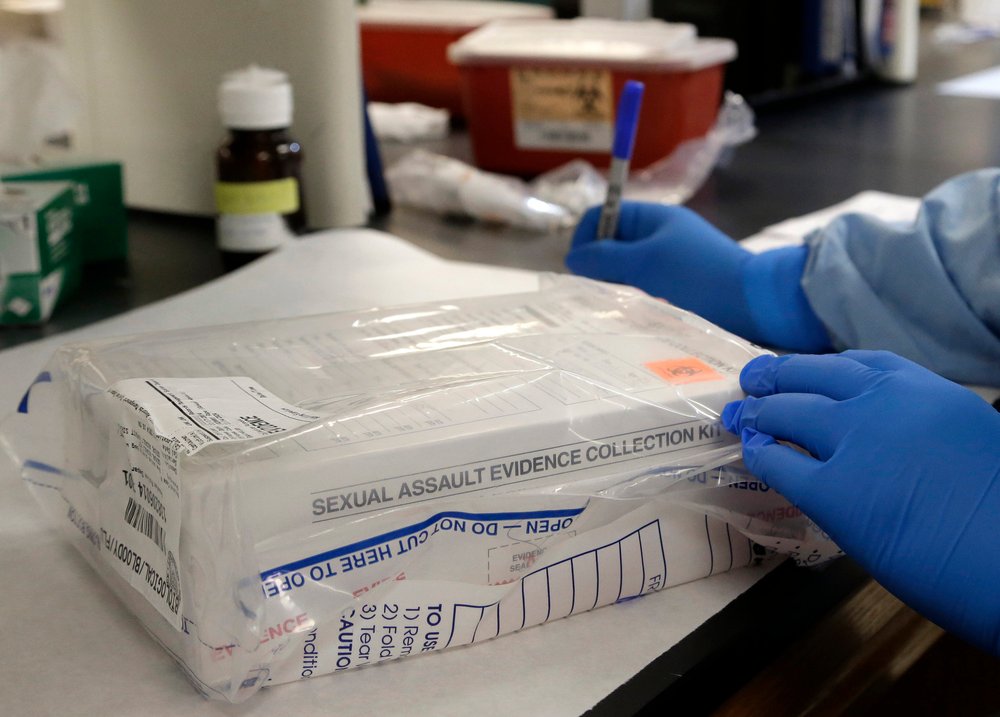AG Letitia James Sends Cease-And-Desist to At-Home Rape Kit Companies
Sept. 12, 2019, 3:52 p.m.
New York Attorney General Letitia James has ordered two at-home rape kit manufacturers to cease operations, arguing that their products stand to hurt consumers a lot more than they help.

New York Attorney General Letitia James has ordered two at-home rape kit manufacturers to cease operations, arguing that their products stand to hurt consumers a lot more than they help. On Wednesday, James sent notices to the Brooklyn-based MeToo Kits Company and Preserve Group, based in New Jersey, reminding them that only trained professionals can collect evidence that will be admissible in court.
"Sexual assault is a real problem that demands a real response,” James said in a press release announcing the cease-and-desist letters. “Proper medical attention and accurate evidence collection are of critical importance to supporting survivors. I am deeply concerned about companies selling kits that deter individuals from seeking professional care and purport to collect evidence without knowing whether the evidence will be admissible in court."
Although it is not yet available for purchase, the MeToo Kit's stated mission "is to help survivors of sexual assault who do not have the ability to go to the police or the hospital to collect time-sensitive DNA evidence," according to the website: "MeToo is founded on the principle that you should be able to take back control. Your experience. Your kit. Your story. Your life. Your choice." Preserve, meanwhile, comes from the brain of a former FBI agent, and is intended "for survivors to collect evidence in the immediate aftermath of the crime if going to the police or hospital is not an option and to use at a later date within the judicial system." (Emphasis theirs.) Both kits seem to exist as an answer to the problem of underreporting — only about one in four sexual assaults are reported to the police — but the problem, as James and a number of other public officials have pointed out, is that allowing survivors to conduct their own exams places the entire premise on shaky ground.
The sexual assault exam process is delicate and complex. Ideally, a trained sexual assault forensic examiner, or a sexual assault nurse examiner, will collect whatever biological evidence — bodily fluids like semen, blood, urine, saliva; hair; skin cells — from the survivor's body. They will likely take photos. They will ask a huge number of sensitive questions. The information gathered could be used in court further down the line, and therefore, the order of operations is important: "When evidence is taken as part of a forensic exam in a rape case, there has to be a very clear order of who came into contact with the evidence: who had access to touch it, see it, know where it was," Ebony Tucker, advocacy director for the National Alliance to End Sexual Violence, told the Cut. As a whole, the exam may be time-consuming and unpleasant, but it has to be meticulous and it has to be performed by a professional if the point is eventual prosecution. As CNN points out, many defense attorneys already do their damndest to cast doubt on forensic evidence in rape cases. Critics warn that leaning on a rape kit taken by an amateur — indeed, taken by the survivor-slash-plaintiff — risks throwing legal proceedings into chaos.
According to James's cease-and-desist letters, at-home kits are also misleading because they "fail to disclose that testing, evidence preservation, and other services [for survivors] are available for free in New York." That's true: Under the Violence Against Women Act, a victim should not have to pay for their own rape kit, and although that has not always been the case in practice, the DIY kits are not free, either. MeToo isn't available yet, but Preserve costs $29.95.
On top of that, "by focusing solely on evidence collection," the letters note, the kits do "a great disservice to survivors of sexual assault, as [the kits] may lead them to forego necessary medical treatment" and other needs (like for example their mental health), because, James notes, they imply that DNA evidence is the primary concern in the aftermath of a rape.
James is just the latest in a string of public officials to voice concerns about the kits. In late August, Michigan Attorney General Dana Nessel wrote MeToo Kits, saying the company was "shamelessly trying to take financial advantage of the 'Me Too' movement." In response, the company's founder — Madison Campbell, who says she is herself a survivor of campus sexual assault — said in a statement that Nessel's accusation was "patently false and downright shameful."
“For far too long, sexual assault victims have been left behind, limited in the options they can choose after such a traumatic event,” she said. “MeToo Kit Company looks forward to a time when it can begin truly productive dialogue with Attorney General Nessel and anyone else who may have concerns or suggestions.”
Campbell had not returned Gothamist's request for comment at time of publication.
Mason told Gothamist she has not yet received a cease and desist letter, but in a "special statement" posted to the Preserve kit website last week, she said: "Crime victims give evidence to law enforcement that is admissible in court every day. The court system doesn’t rule out evidence for the sole reason that it has been provided by the victim. There are myriad reasons why evidence is or is not admissible in court. A blanket statement that a victim collecting evidence of sexual assault with an at-home kit does not apply. Every person within the chain of custody is responsible for the proper handling of evidence."